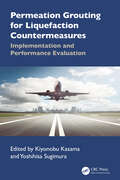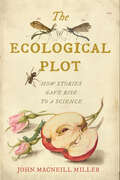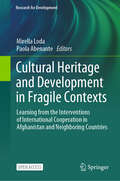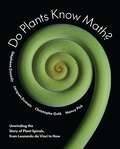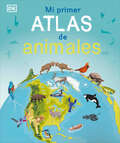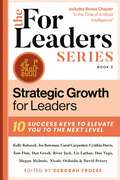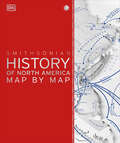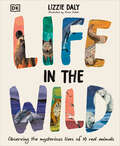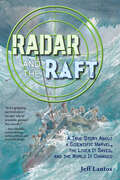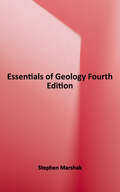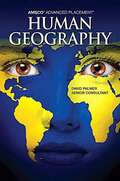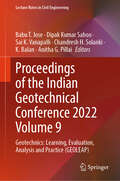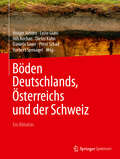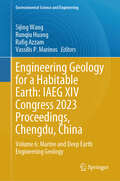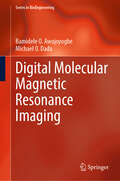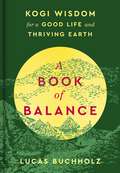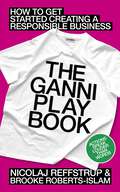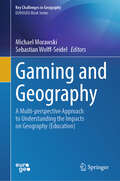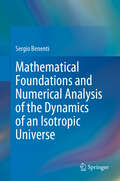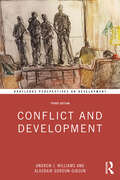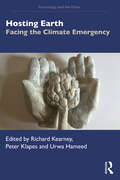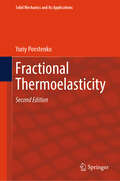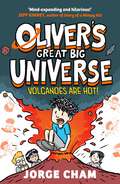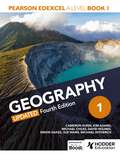- Table View
- List View
Permeation Grouting for Liquefaction Countermeasures: Implementation and Performance Evaluation
by Yoshihisa Sugimura Kiyonobu KasamaAcademic and industry experts describe the use of chemical (permeation) grouting beneath an airport runway to improve ground resistance to liquefaction. They present the cost, environmental, and operational benefits; specifications; methodology; and practical results of this cutting-edge method. Because transportation infrastructure such as ports and airports are required to operate even in the event of a large earthquake, they must be resilient against liquefaction.Through contributions from experts in academia and industry, this book describes the discovery of construction defects at three airports in Japan and the subsequent project to repair and strengthen the ground using chemical grouting using environmentally friendly colloidal silica, the first time this technique was used in Japan. This book first describes chemical grouting and its benefits, its specifications, and field investigation results of its ground improvement performance. Next, it demonstrates a numerical and probabilistic method to model spatial variability in material properties of field data on improved ground. Finally, it explains a performance-based verification for airport runway availability in terms of bearing capacity and runway flatness after a large earthquake. Through its clear explanations, this book enables readers to implement chemical grouting and enjoy the cost, environmental, access, and operational benefits of this technique over traditional methodologies that would require temporary site closure and large-scale excavation. Because the concept and methodology described in this book are applicable to various geological, geotechnical, and seismological conditions depending on the location and structural and operational conditions depending on the infrastructure type, this book is a useful resource for geotechnical and other infrastructure engineers who must strengthen the ground without disrupting normal operations.
The Ecological Plot: How Stories Gave Rise to a Science (Under the Sign of Nature)
by John MacNeill MillerUnraveling the surprising history of the concept of ecologyThe Ecological Plot traces the roots of this most mainstream branch of science back to an unexpected source: narrative storytelling. Weaving together the histories of different disciplines, John MacNeill Miller shows how pioneering thinkers drew on a shared set of literary techniques to imagine how different species could work together as a single, interdependent community, redefining the way we conceptualize the natural world. Beginning with a series of revolutionary exchanges between the political economist Thomas Robert Malthus, the writer Harriet Martineau, and the naturalist Charles Darwin, The Ecological Plot identifies the foundations of modern notions of ecology, economics, and realist fiction, maps how they evolved through the works of Victorian writers such as Elizabeth Gaskell, George Eliot, and Thomas Hardy, and shows how they resurfaced in the works of Aldo Leopold and Rachel Carson a century later. Miller&’s book reveals why our most sophisticated efforts to explain humanity&’s relationship to nature have been segregated into different disciplines and makes an argument for the importance of bringing these separate ways of understanding the world back together as a crucial step toward solving the environmental, economic, and ethical problems of the present.
Cultural Heritage and Development in Fragile Contexts: Learning from the Interventions of International Cooperation in Afghanistan and Neighboring Countries (Research for Development)
by Mirella Loda Paola AbenanteThis open access book discusses cooperation strategies for safeguarding cultural heritage in nations facing diverse forms of fragility. Through case studies and a critical analysis, it explores preserving cultural heritage to spur regional socioeconomic development and community empowerment, focusing on the Middle East and Pakistan, with an in-depht exploration of the World Heritage site of Bamiyan, Afghanistan. The first section offers an overview of cultural heritage protection efforts since UNESCO designated Bamiyan Valley as a World Heritage Site in 2003, reflecting on challenges and successes before Taliban rule. The second section turns to the present situation, analysing the inerplay between heritage preservation, community involvement and policies addressing urban and demographic growth. The third section provides a review of relevant examples of cultural heritage preservation in the Middle East and Pakistan by the Italian Agency for Development Cooperation, UNESCO, and international NGOs. It highlights the relationship between heritage protection, sustainable development and the mitigation of social and economic fragilities. In the concluding section, the book synthesizes research findings and operational approaches, providing a nuanced understanding of the cultural heritage, development, and fragility in the Middle East. Concluding, in the fourth section, the book offers a comprehensive report on main methodological findings, also conferrable to other contexts both in terms of future research and operational activities.
Do Plants Know Math?: Unwinding the Story of Plant Spirals, from Leonardo da Vinci to Now
by Stéphane Douady Jacques Dumais Christophe Golé Nancy PickA breathtakingly illustrated look at botanical spirals and the scientists who puzzled over themCharles Darwin was driven to distraction by plant spirals, growing so exasperated that he once begged a friend to explain the mystery &“if you wish to save me from a miserable death.&” The legendary naturalist was hardly alone in feeling tormented by these patterns. Plant spirals captured the gaze of Leonardo da Vinci and became Alan Turing&’s final obsession. This book tells the stories of the physicists, mathematicians, and biologists who found themselves magnetically drawn to Fibonacci spirals in plants, seeking an answer to why these beautiful and seductive patterns occur in botanical forms as diverse as pine cones, cabbages, and sunflowers.Do Plants Know Math? takes you down through the centuries to explore how great minds have been captivated and mystified by Fibonacci patterns in nature. It presents a powerful new geometrical solution, little known outside of scientific circles, that sheds light on why regular and irregular spiral patterns occur. Along the way, the book discusses related plant geometries such as fractals and the fascinating way that leaves are folded inside of buds. Your neurons will crackle as you begin to see the connections. This book will inspire you to look at botanical patterns—and the natural world itself—with new eyes.Featuring hundreds of gorgeous color images, Do Plants Know Math? includes a dozen creative hands-on activities and even spiral-plant recipes, encouraging readers to explore and celebrate these beguiling patterns for themselves.
Mi primer atlas de animales (Children's Illustrated Atlas)
by DK¿Dónde viven las jirafas? ¿En qué países hay tigres? ¿Los osos son de clima cálido o frío?Este libro para niños de 6 a 8 años reúne información sobre las características y los lugares que habitan los animales de todo el mundo, desde los osos polares del helado Ártico o los emúes de Australia hasta los tucanes de la selva amazónica y los guepardos de los desiertos africanos. A través de datos divertidos y cifras sorprendentes, los pequeños podrán aprender de manera fácil y amena dónde viven los animales, en qué hábitats se desarrollan y cuál es el clima en cada uno de ellos.En su interior, encontrarás: Un montón de datos divertidos sobre más de 600 animales de todo el mundo y más de 40 mapas a todo color que te indican en qué países se encuentran.Fotografías de calidad de las plantas y los animales más representativos de cada continente.Un manual de los contenidos del libro que explica cómo abordarlos.Juegos que pondrán a prueba lo que aprendieron y un glosario de términos.Cada página está repleta de información de un gran variedad de hábitats, desde altas montañas y áridos desiertos hasta praderas salvajes y selvas tropicales. Además, este libro educativo incluye un mapa desplegable a todo color que muestra cada rincón del mundo. ¡Lleva el reino animal a la pared de tu cuarto y vive una emocionante aventura con los animales del planeta!Bring the amazing animal kingdom right into your home! Packed with fun facts about animals and more than 40 full-color maps that detail the countries where they live.This fabulous educational book for kids zooms-in on countries and continents to show key animal habitats and locations around the world. A thrilling animal adventure around the globe, perfect for kids ages 6–8.Each colorful map in this children's book is bursting with animal facts, combining illustrations with gorgeous photographs that highlight each continent's most iconic animals. From the tallest mountains and desolate deserts to wild grasslands and tropical rain forests; it covers key habitats and locations for each country.Packed with tons of fun facts and figures, the Children's Illustrated Animal Atlas explains where these hidden habitats are found and what the local climate is like. Find descriptions and illustrations of the plants and animals that live in them, making the information easy for kids to comprehend.
Strategic Growth for Leaders: 10 Success Keys to Elevate You to the Next Level (For Leaders Series #2)
by Indigo River PublishingStrategic Growth for Leaders: 10 Success Keys to Elevate You to the Next Level is the second volume of the For Leaders Series.As new technologies expand and converge, we witness industry, connectivity, and innovation advance at accelerating rates. The emergence of generative AI, specifically, raises questions about the future of human agency. Add to that, the scale of global tension environmentally, economically, and politically—never mind residual effects of the COVID-19 pandemic—are upending the world as we know it. No matter how worthy the product or service you offer, strategic growth is essential to keep pace with change and extend your reach. To help you do that, Strategic Growth for Leaders, Volume 2 in the For Leaders series, is here. With chapters of insight from 10 successful leaders and a bonus chapter demystifying our relationship with AI, Strategic Growth For Leaders is an important tool for navigating this new era. The contents explore methods of approaching change through deeper self-awareness; more finely-tuned business practices; building solid, authentic relationships with employees and clientele; and knowing when enough is enough. It is a must-read for anyone who wants to improve their strategies for growth.
History of North America Map by Map (DK History Map by Map)
by DKA visual journey through the history of North America via a series of engaging, detailed maps, explaining key events and eras from prehistory to the 21st century.Specially created maps tell the story of this vast region: the first human populations and the lands of indigenous peoples; the complex ancient civilizations that arose in Mexico; the first Westerners to arrive on the shores, from the Vikings to the Mayflower; early settlements and the devastating consequences for the indigenous population; the stories of enslaved people and the abolition of slavery; the American Revolution and Civil War that shaped the modern United States; the Mexican-American War; the founding of Canada; and the industrial era and the growth of a global superpower. Brand new maps are accompanied by historic maps, documents, and artefacts, while timelines clearly lay out the chronology of events. Each era is introduced and explained, while features offer a closer look at selected moments. Whether for casual browsing or a deep dive into the past, History of North America Map by Map is essential reading for anyone who wants to know more about this fascinating land.
Life in the Wild: Observing the Mysterious Lives of 10 Real Animals
by Lizzie DalyWhat can 10 real-life and uniquely jaw-dropping animal journeys teach us about our world, and the ways in which it is changing?As a filmmaker and scientist, Lizzie Daly tells stories about the natural world and uncovers the hidden secrets of our planet. But despite huge advances in technology, there is still so much we don't know about what species get up to in the wild. However, sometimes—just sometimes—we get a small glimpse into what their lives are like.This book tells the tale of our planet's intriguing wildlife. Through 10 real stories, we follow in the footprints of polar bears, big cats, wolves, and jaguars, and explore oceans with whales, sharks, and seabirds. These tales of migration, mystery, and unique behaviors teach us new and exciting information about animal activity and ecology and give us access to some of the most inhospitable corners of our planet.
Radar and the Raft: A True Story About a Scientific Marvel, the Lives it Saved, and the World it Changed
by Jeff LantosThis science-history nonfiction adventure mash-up will be on every middle grade reader's radar.Who knew that an improbable rescue during WWII would be facilitated by scientific discoveries in the 18th century?Expert researcher and educator Jeff Lantos makes the history-science connection between batteries and radar and one oceanic adventure in this engaging middle-grade escapade told in two intertwining storylines.Readers are first invited to follow scientific discoveries in the 1700s that eventually lead to the creation of radar, and are then immersed in a world where World War II rages. German U-boats sink ships, and the ship just hit has an American mom and her two young kids aboard. Now Ethel, Robert, and Mary Bell are on a raft with fourteen other people, floating in the ocean and hoping for rescue.Lantos expertly weaves radar's story of discovery with the Bell family's harrowing journey, bringing readers on an exciting fast-paced adventure through history.♦ "A rare and exhilarating mix of hard science and seagoing terror."—Kirkus Reviews, starred review
Essentials of Geology
by Stephen MarshakSuperior visuals and up-to-date research help students see the world like a geologist. The Fourth Edition offers a streamlined, engaging approach to geologic processes, presented through visuals, photographs, and text, as well as discussions of modern science phenomena.
AMSCO Advanced Placement Human Geography
by David PalmerEquip your students to excel in the current AP Human Geography course and on the exam.
Proceedings of the Indian Geotechnical Conference 2022 Volume 9: Geotechnics: Learning, Evaluation, Analysis and Practice (GEOLEAP) (Lecture Notes in Civil Engineering #537)
by Babu T. Jose Dipak Kumar Sahoo Sai K. Vanapalli Chandresh H. Solanki K. Balan Anitha G. PillaiThis book comprises the select proceedings of the Indian Geotechnical Conference (IGC) 2022. The contents focus on recent developments in geotechnical engineering for a sustainable world. The book covers behaviour of soils and soil–structure interaction, soil stabilization, ground improvement, and land reclamation, shallow and deep foundations, geotechnical, geological and geophysical investigation, rock engineering, tunnelling, and underground structures, slope stability, landslides and liquefaction, earth retaining structures and deep Excavations, geosynthetics engineering, geo-environmental engineering, sustainable geotechnics, and landfill design, geo-hydrology, dam and embankment engineering, earthquake geotechnical engineering, transportation geotechnics, forensic geotechnical engineering and retrofitting of geotechnical structures, offshore geotechnics, marine geology, and subsea site investigation, computational, analytical and numerical modelling, and reliability in geotechnical engineering. The contents of this book will be useful to researchers and professionals alike.
Böden Deutschlands, Österreichs und der Schweiz: Ein Bildatlas
by Peter Schad Holger Joisten Luise Giani Nils Kochan Dieter Kühn Daniela Sauer Herbert SponagelBöden sind eine Lebensgrundlage der Menschheit. Sie kennenzulernen ist nicht nur wichtig, sondern auch außerordentlich faszinierend. Dieser Bildatlas zeigt die Vielfalt unserer Böden, erklärt ihre Entstehung, ihre Eigenschaften, ihre Gefährdung und wie wir sie schützen können.200 Bodenprofile werden mit charakteristischen Boden- und Landschaftsbildern vorgestellt, mit detaillierten Beschreibungen erläutert und durch Analysendaten ergänzt. Jedes Profil wird nach der Bodenkundlichen Kartieranleitung (KA5) boden- und substratsystematisch eingeordnet. Auch werden die Bezeichnungen dieser Böden nach der internationalen „World Reference Base for Soil Resources“ (WRB) angegeben. Zahlreiche Karten zeigen die Verbreitung von Bodenregionen und Bodenklassen. Darstellungen der Abfolge der Böden in der Landschaft (Catenen) ordnen die Böden in ihre Umgebung ein. Zum besseren Verständnis sind wichtige bodenkundliche Sachverhalte in Einführungskapiteln anschaulich erklärt.Dieses Buch ist das Werk von 44 Autorinnen und Autoren sowie sieben Herausgebern, die ihr umfangreiches Experten- und Regionalwissen eingebracht haben. Es richtet sich sowohl an ein Fachpublikum, an Lernende und Lehrende, als auch an diejenigen, die sich bisher nicht mit Böden beschäftigt haben, die jedoch an der Vielfalt unserer Böden, ihrer Schönheit und ihrem landschaftsbezogenen Vorkommen interessiert sind.
Engineering Geology for a Habitable Earth: Volume 6: Marine and Deep Earth Engineering Geology (Environmental Science and Engineering)
by Rafig Azzam Runqiu Huang Vassilis P. Marinos Sijing WangThis book collects the selected papers of the XIV Congress of the International Association for Engineering Geology and the Environment held in Chengdu, Sichuan, China from September 21st - 27th, 2023, with the theme of Engineering Geology for a Habitable Earth. The meeting proceedings analyses the dynamic role of engineering geology in our changing world. The congress is expected to enhance the inter-disciplinary research development of international engineering geology and the environment, and contribute to the advancement of major projects, ecological progress, and habitable earth with in-depth discussion in the area of engineering geology and global climate change, geological hazard assessment and prevention, geotechnical properties of rock and soil mass, engineering geology and the environmental issues concerning marine, transportation, urban and ecological environment protection, engineering geology and resilience engineering construction, intelligent engineering geology, and new theories, methods, and techniques in engineering geology.
Digital Molecular Magnetic Resonance Imaging (Series in BioEngineering)
by Michael O. Dada Bamidele O. AwojoyogbeThis book pushes the limits of conventional MRI visualization methods by completely changing the medical imaging landscape and leads to innovations that will help patients and healthcare providers alike. It enhances the capabilities of MRI anatomical visualization to a level that has never before been possible for researchers and clinicians. The computational and digital algorithms developed can enable a more thorough understanding of the intricate structures found within the human body, surpassing the constraints of traditional 2D methods. The Physics-informed Neural Networks as presented can enhance three-dimensional rendering for deeper understanding of the spatial relationships and subtle abnormalities of anatomical features and sets the stage for upcoming advancements that could impact a wider range of digital heath modalities. This book opens the door to ultra-powerful digital molecular MRI powered by quantum computing that can perform calculations that would take supercomputers millions of years.
A Book of Balance: Kogi Wisdom for a Good Life and Thriving Earth
by Lucas BuchholzWe all need help centering ourselves to serve ourselves and our world. In this small, beautiful book, the Kogi—a remote and ancient tribe in the mountains of Colombia--offer their learnings. They pose nine thought-provoking questions to help us live harmoniously with the earth and in turn find happiness and purpose in every moment.“Just as we are both sitting here and talking, this is how we can live well. All of this you will write in the book.”—Mama Jose Gabriel, a spiritual guide of the Kogi tribe, to author Lucas BuchholzFor centuries, the Kogi have lived in seclusion in Colombia’s remote Sierra Nevadas, known as “the heart of the world.” But in recent years, concerned by the environmental degradation they have experienced in their villages and forests, a few emissaries from the tribe emerged to bring an urgent and loving message to the West—advice on how to live in harmony with the earth.Buchholz was invited to their home to receive and transcribe this message. A Book of Balance takes us on a journey into a startlingly beautiful landscape and into a sacred space: the traditional fireside circle held regularly by the tribe. In this circle, members consider key questions essential to their community.In this slim volume of spiritual introspection, they ask us to share in their practice, posing nine questions that focus our minds and hearts on who we are, who we can become.Throughout we hear the words of the Kogi elders, wisdom that offers revelations, inspiration, and direction for our everyday lives.A beautiful book to own, to share with friends, and discuss in community.
The GANNI Playbook: How to Get Started Creating a Responsible Business
by Nicolaj Reffstrup Brooke Roberts-Islam'It’s Ganni’s journey from cult Scandi favourite to a leader in the sustainability space'Emily Chan, VogueThis book is about what happened when a business leader decided not to bury his head in the sand about climate change; when he found the conversation with his kids about floods from melting ice caps too painful. This book asks what it means to force yourself to take a different business path, where the destination is a responsible and profit-making business.In The GANNI Playbook, Nicolaj Reffstrup unveils the strategies that propelled GANNI to international stardom, while candidly unravelling the cultural, operational and creative components required to construct a business that embraces an uncertain future.'GANNI offers a blueprint for how to embed sustainability from within'Rachel Cernansky, Vogue Business'What's the secret to sustainable success? There is no secret. GANNI is willing to share. In fact, it’s doing exactly that'Rose Dodd, Sleek
Gaming and Geography: A Multi-perspective Approach to Understanding the Impacts on Geography (Education) (Key Challenges in Geography)
by Michael Morawski Sebastian Wolff-SeidelThis book explores the uncharted territory where gaming and geography intersect in "Gaming and Geography (Education)." This book bridges the gap between video games and geography, delving into the constructivist creative processes of game development, gameplay, and critical reflections on video games' role in geographical discourses. Through a multi-perspective lens, the book examines how video games can facilitate the exploration of geographic questions and act as catalysts for critical discourses. Scholars shed light on the geographies presented in video games, including their representations, spatial images, and policies. By viewing video games as cultural and critical geography practices, the authors enrich the political, socio-cultural, and critical geographies associated with this medium. A key argument of the book is that video games can foster systemic competence and networked thinking, particularly in addressing complex socio-ecological challenges like climate change and migration. In contrast to traditional geography classes, digital games provide valuable simulations of complex systems, enhancing students' understanding and skills. The book also explores other possibilities such as digital field trips and language support to enhance the educational experience. "Gaming and Geography (Education)" offers a compelling narrative that highlights the diverse roles video games can play in geographic education. By exploring the intersection of gaming and geography, this book deepens our understanding of this dynamic relationship and its impact on critical geographies within the realm of video games.
Mathematical Foundations and Numerical Analysis of the Dynamics of an Isotropic Universe
by Sergio BenentiThis book is an enhanced and expanded English edition of the treatise “Fondamenti matematici e analisi numerica della dinamica di un Universo isotropo,” published by the Accademia delle Scienze di Torino in volume no. 42-43, 2018-2019. The book summarizes some of the principal findings from a long-term cosmology research project, aiming to clarify significant results through clear mathematical postulates. Despite efforts, a single mathematical model accurately describing the universe’s evolution remains elusive due to early universe complexity and numerous observational parameters. Over the past century, various models have been proposed and discarded, illustrated by debates on the cosmological constant and spatial curvature assumptions. Currently, many models lack clear foundations, causing confusion in the field. Standard cosmological approaches rely on principles like Weyl’s principle, homogeneity, and isotropy, but may overlook discerning purely geometrical properties from those dependent on field equations. This book aims to bring order to cosmology by starting from understandable mathematical postulates, leading to theorems. Disagreements on postulates can prompt adjustments or alternative approaches. Physics often consists of deductive theories lacking explicit delineation of underlying concepts and postulates, a criticism relevant to cosmological theories. Despite a late 1990s consensus on the Lambda cold dark matter model, the absence of a logical-deductive structure in literature complicates understanding, leading some to humorously dub it the “expanding Universe and expanding confusion.”
Conflict and Development (Routledge Perspectives on Development)
by Andrew J. Williams Alasdair Gordon-GibsonFully revised and updated in its third edition, this timely book brings together the study of conflict and war and the problems surrounding the economic development of developing societies that are most prone to experiencing problems in moving on after war.The book does so by reflecting on the issues surrounding war as it unfolds and after it has (in principle) ‘ended’, within the context of the history, present-day problems and future prospects. The book aims to highlight the possibilities, successes and failures of past and present policies that bring ‘development’ to countries and peoples that want to be more involved in deciding their own futures after conflict and war, and often find themselves subject to what can be seen as arbitrary and even alien ways of thinking and acting by institutions in which they theoretically have membership and agency but often do not in practice. The case studies have been fully updated to reflect changes and developments since the second edition of this text, and there are questions at the end of each chapter to promote reflection. This new edition presents a deeper dive into the history of conflict and the emergence of new theories and policy guidance about present and future options in the fields of conflict and development.Accessible and engaging, this textbook is a pivotal resource for a nexus of subjects related to the often separated fields of conflict and development studies, as well as practitioners in this area.
Hosting Earth: Facing the Climate Emergency (Psychology and the Other)
by Richard Kearney Peter Klapes Urwa HameedHosting Earth is a timely and much-needed volume in the emerging literature of environmental philosophy, drawing upon art, science, and politics to explore alternatives to the traditional domination of nature by humans.Featuring a dialogue with Mary Robinson (former UN High Commissioner for Human Rights and former President of Ireland), which addresses the current climate emergency, this book engages the question of ecological hospitality: what does it mean to be guests of the earth as well as hosts? It includes chapters by cutting-edge scholars in the philosophy of nature, as well as artists, scientists, psychologists, and theologians. The contributors discuss proposals for a new "Poetics of the Earth," opening horizons beyond our perilous Anthropocene to a new Symbiocene of mutual collaboration between human and non-human species.Focusing on the central role that the human psyche plays in answering our current ecological emergency, Hosting Earth is for anybody invested in the future of our planet and how psychological, psychoanalytic, and philosophical thought can reorient the current conversation about ecology.
Fractional Thermoelasticity (Solid Mechanics and Its Applications #278)
by Yuriy PovstenkoThis new edition offers expanded coverage of fractional calculus, including Riemann–Liouville fractional integrals, Riemann–Liouville and Caputo fractional derivatives, Riesz fractional operators, and Mittag-Leffler and Wright functions. Additionally, it provides a comprehensive examination of fractional heat conduction and related theories of thermoelasticity. Readers will gain insights into the concepts of time and space nonlocality and their impact on the generalizations of Fourier's law in thermoelasticity. This edition presents a detailed formulation of the problem of heat conduction in different domains and the associated thermal stresses, covering topics such as the fundamental solution to the Dirichlet problem, constant boundary conditions for temperature, and the fundamental solution to the physical Neumann problem. New insights into time-harmonic heat impact on the boundary have also been added. Cracks in the framework of fractional thermoelasticity are also considered.
Oliver's Great Big Universe: A Times Children's Book of the Week (Oliver's Great Big Universe #2)
by Jorge Cham&‘Mind-expanding and hilarious!&’ Jeff Kinney, author of the bestselling DIARY OF A WIMPY KID series.'A brainy guide to the barfs, farts and burps of Planet Earth.' The TimesThe second book in the hilarious series that makes you laugh-out-loud AND grows your brain. Perfect for readers age 8+ and fans of Diary of a Wimpy Kid and The 13-Storey Treehouse. Hi, I&’m Oliver! Writing a book has made me kind of a celebrity around school – no big deal. But does that mean everything is perfect? No way! I&’m still trying to figure out the usual stuff: school cliques, weird family, and how to finally win the science fair. While I may know EVERYTHING about space, there&’s a lot to learn about the planet we live on, like: volcanic burps and bacteria farts how the Earth&’s layers are like boba tea aliens! (Are we the aliens?) From bestselling writer and robotics engineer Jorge Cham, Oliver&’s Great Big Universe: Volcanoes Are Hot! is the second book in a STEM-themed, diary-style series.
Pearson Edexcel A-level Geography Book 1, Updated Fourth Edition
by Sue Warn Cameron Dunn Simon Oakes David Holmes Michael Witherick Kim Adams Michael ChilesThis edition is for Issue 6 of the Pearson Edexcel A-level Geography specification, for examination from Summer 2026 onwards.Develop the geographical skills and knowledge that students need with this fully updated textbook from the leading A-level Geography publisher.This book provides in-depth subject coverage and exam support for all compulsory and optional topics.> Learn, understand and revise the content, using clear explanations of every topic, with key terms defined throughout> Develop understanding of geographical theory and concepts with engaging examples and place contexts> Improve understanding through skills-focused activities based on a variety of textual, data and visual sources> Check topic knowledge and identify areas for revision with review questions at the end of each chapter> Approach exams with confidence by working through a variety of practice questions> Be inspired by exciting human and physical geography fieldwork project ideas and guidance for fieldwork and investigations
Pearson Edexcel A-level Geography Book 1, Updated Fourth Edition
by Sue Warn Cameron Dunn Simon Oakes David Holmes Michael Witherick Kim Adams Michael ChilesThis edition is for Issue 6 of the Pearson Edexcel A-level Geography specification, for examination from Summer 2026 onwards.Develop the geographical skills and knowledge that students need with this fully updated textbook from the leading A-level Geography publisher.This book provides in-depth subject coverage and exam support for all compulsory and optional topics.> Learn, understand and revise the content, using clear explanations of every topic, with key terms defined throughout> Develop understanding of geographical theory and concepts with engaging examples and place contexts> Improve understanding through skills-focused activities based on a variety of textual, data and visual sources> Check topic knowledge and identify areas for revision with review questions at the end of each chapter> Approach exams with confidence by working through a variety of practice questions> Be inspired by exciting human and physical geography fieldwork project ideas and guidance for fieldwork and investigations
